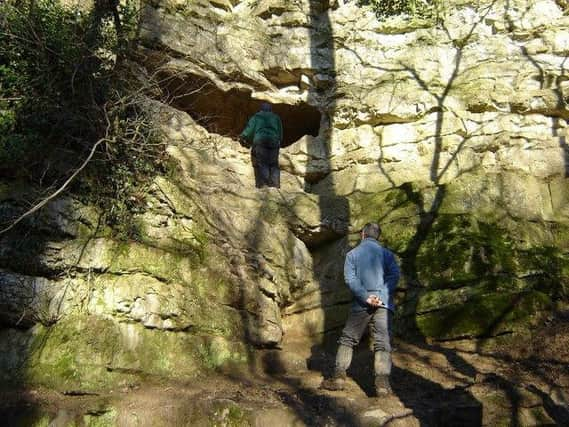How the hyena cave in Yorkshire changed history


But a cave in Yorkshire was home to the skeletal remains of Ice Age hyena, elephant and hippopotamus - species which have been extinct in Britain for thousands of years.
This is the ultimate Yorkshire bucket listThe bones were found in Kirkdale Cave, near Kirkbymoorside in the Vale of Pickering, by local quarry workers in 1821.
Advertisement
Hide AdAdvertisement
Hide AdNatural scientists brought in to analyse the bones - when the discipline was in its infancy - first believed the skeletons had been washed into the cavern during the Biblical flood, before ruling out this theory when they realised that the entrances were too small for large animals to have passed through.
Instead, they concluded that the cave was a hyenas' den and that the scavengers had brought the bones there from elsewhere. Other remains included those of rhinoceros, bison, giant reindeer and birds. It is the most northern site in the world where hippopotamus fossils have been found.
The hyena cave was originally 175 metres in length, but was extended during surveys by Scarborough Caving Club in 1995.
The discovery could easily have been lost to the world, as the limestone quarry workers who found the bones assumed they were the remains of cattle that had died in an epidemic and been dumped there. Some of the bones were even used to fill in potholes on a nearby road, before an amateur naturalist noticed that they did not belong to livestock.
Advertisement
Hide AdAdvertisement
Hide AdFossil collectors then began to visit the cave, and samples were sent to William Clift at the Royal College of Surgeons, who identified them as the remains of hyena larger than the modern species. Geologist and palaeontologist William Buckland then began what turned out to be a pioneering investigation to prove that the deposits were not the result of Noah's flood.
The Kirkdale Cave specimens and the interest they generated led to the founding of the Yorkshire Philosophical Society, and the fossil collections can now be found in the Yorkshire Museum, which is situated in the Museum Gardens in York. Some are held at the Whitby Museum.